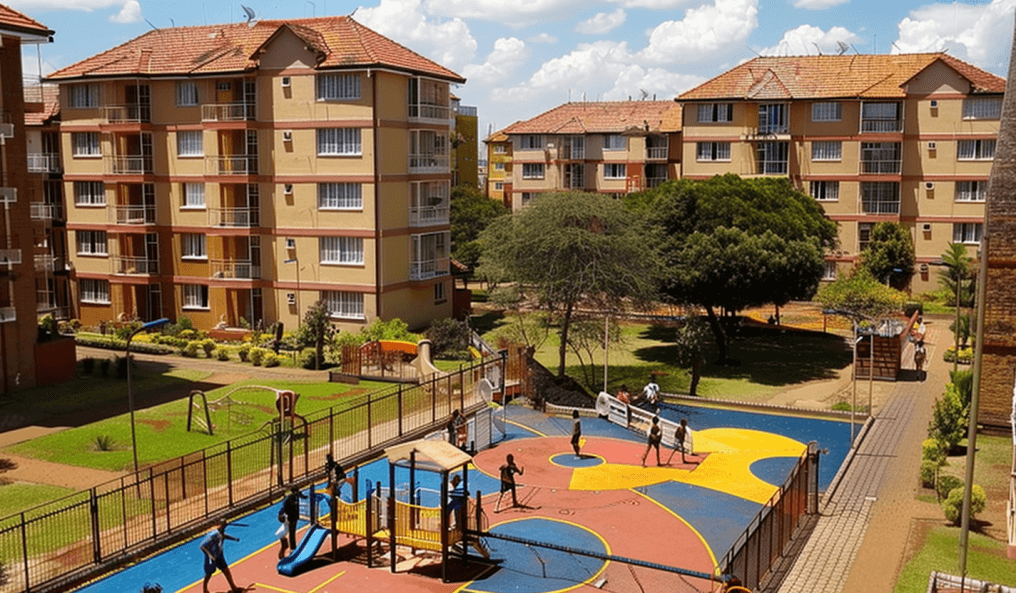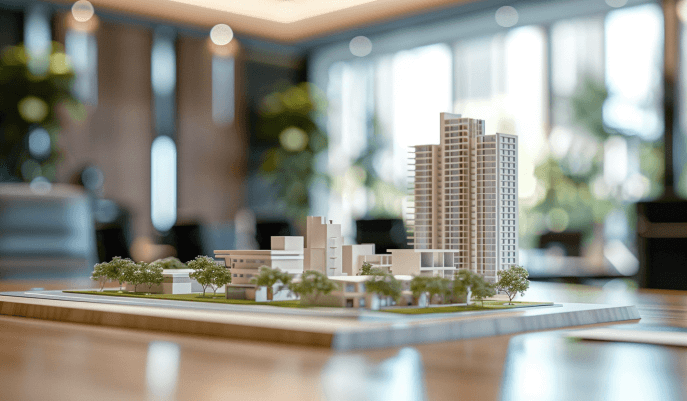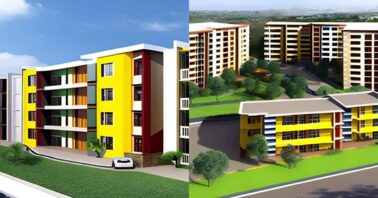- The real estate sector in Kenya is evolving rapidly, influenced by various trends.
- Developers are increasingly incorporating green building technologies, such as solar panels, rainwater harvesting systems, and energy-efficient designs, to minimize environmental impact and reduce operational costs.
- The Kenyan government has actively promoted affordable housing initiatives to tackle the housing deficit.
- Technological innovations are revolutionizing the real estate industry in Kenya
The real estate sector in Kenya is evolving rapidly, influenced by various trends that are reshaping the market dynamics. From changing consumer preferences to technological advancements, these trends are not only influencing the way properties are developed and marketed but also impacting investment strategies and overall industry growth. Let’s delve into some of the key emerging trends that are shaping Kenya’s real estate market:
READ ALSO: Real Estate Trends in 2022
Table of Contents
1. Sustainable Development
One of the prominent trends in Kenya’s real estate sector is the emphasis on sustainable development practices. Developers are increasingly incorporating green building technologies, such as solar panels, rainwater harvesting systems, and energy-efficient designs, to minimize environmental impact and reduce operational costs. Sustainable buildings are not only eco-friendly but also appeal to environmentally conscious buyers and tenants.

During the recent EAPI event held at the Radison Blue hotel in Upperhill, Nairobi, there were numerous talks and discussions by various panelists on the importance of building green properties. Some companies go as far as only leasing buildings that have the IFC EDGE certification.
READ ALSO: BuyRentKenya Showcases Innovations in Real Estate Technology at EAPI Summit
2. Affordable Housing Initiatives
The Kenyan government has actively promoted affordable housing initiatives to tackle the housing deficit. These programs target low and middle-income earners, attracting local and international investors. They not only address a critical societal need but also offer investment opportunities and create jobs.
President Ruto, speaking in Bomet County last month, emphasized the importance of this initiative. He stated that the affordable housing project will not only generate employment for the youth but also preserve land for agriculture and food production. “Housing is going to give us jobs for our young people, give us decent living conditions for our people, is going to assist us in making sure that we have land for food production and is also going to make sure that we grow our manufacturing sector,” the President said.
READ ALSO: Pricing of The Affordable Housing Houses By The Government of Kenya
3. Rise of Mixed-Use Developments
Mixed-use developments, integrating residential, commercial, and retail spaces, are increasingly gaining popularity in Kenya. In Nairobi’s Westlands area, notable projects like the Nairobi Global Trade Centre (GTC) exemplify this trend.

These developments offer convenience and efficiency by providing residents with easy access to amenities like shopping centers, offices, recreational facilities, and transportation hubs. Mixed-use projects are transforming urban landscapes and catering to the diverse needs of modern city dwellers.
4. Technology Integration
Technological innovations are revolutionizing the real estate industry in Kenya. From virtual property tours and online listings to blockchain-based transactions and property management apps, technology is streamlining processes and enhancing transparency. Artificial Intelligence (AI) is being used for predictive analytics, market forecasting, and personalized property recommendations, enabling stakeholders to make data-driven decisions.
There are talks to tokenize real estate in Kenya. This means that a single apartment could be broken down into shares and one would buy a share through blockchain. This way, one could have a piece of real estate in luxurious neighbourhoods and earn dividends.
5. Focus on Security and Amenities
Security and lifestyle amenities play pivotal roles in property purchase decisions. Gated communities with 24/7 security surveillance, access control systems, and recreational facilities like swimming pools, gyms, and parks are highly sought after by homebuyers. Developers are prioritizing the creation of safe and vibrant neighborhoods that align with residents’ lifestyle preferences. Popular neighborhoods such as Tatu City in Ruiru, Tilisi in Limuru, Konza City in Machakos, and Edenville in Kiamb are increasingly being preferred by families across Kenya. Many land-selling companies are also adopting this neighborhood style by offering land parcels within gated estates or communities, catering to evolving housing demands.
READ ALSO: The Benefits of Living in Gated Communities in Kenya
6. Impact of Remote Work
The accelerated shift to remote work spurred by the COVID-19 pandemic has significantly influenced real estate preferences among professionals. There is now a heightened demand for homes that cater to remote work needs, featuring dedicated office spaces, reliable high-speed internet connectivity, and convenient access to urban amenities. This trend has reshaped the real estate landscape, with more individuals seeking properties located in suburban areas and satellite towns that offer a better balance between work and lifestyle.

In response to this evolving demand, developers are strategically focusing on incorporating essential amenities that support remote work into their property designs. This includes prioritizing strong internet infrastructure, ensuring reliable power supply (often with backup solutions like generators or solar energy), and creating versatile living spaces conducive to productivity.
Additionally, developers are integrating communal workspaces, shared lounges, and proximity to co-working hubs or cafes into residential developments to meet the growing desire for flexible work arrangements within residential settings. This shift underscores a broader transformation in urban living, reflecting the adaptation of real estate to accommodate changing work dynamics and lifestyle preferences in a post-pandemic era.
Conclusion
In conclusion, Kenya’s real estate market is witnessing a transformation driven by these emerging trends. Developers, investors, and stakeholders are adapting to these changes to capitalize on new opportunities and address evolving consumer needs.
As the market continues to evolve, staying abreast of these trends will be essential for navigating the dynamic landscape of Kenya’s real estate sector. By embracing innovation and sustainability, the industry is poised for continued growth and resilience in the years to come.



